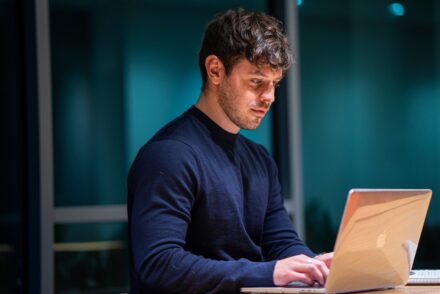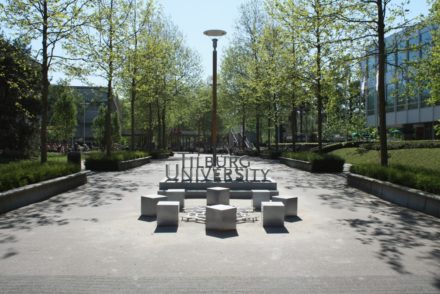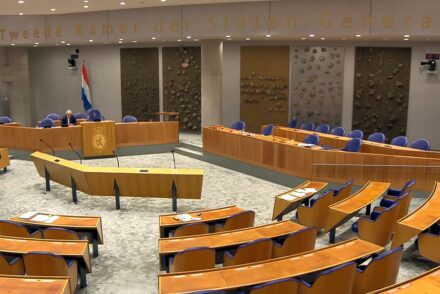No beer, wine and shots? ‘I often hear: don’t be so boring, you’re still young!’
Club drinks, drinking games and ‘a drink to create a good atmosphere’. Student life and alcohol consumption are often mentioned in the same breath. But is drinking really part of student life or can students also do without alcohol? Univers asked three students from Tilburg University who consciously choose not to drink.
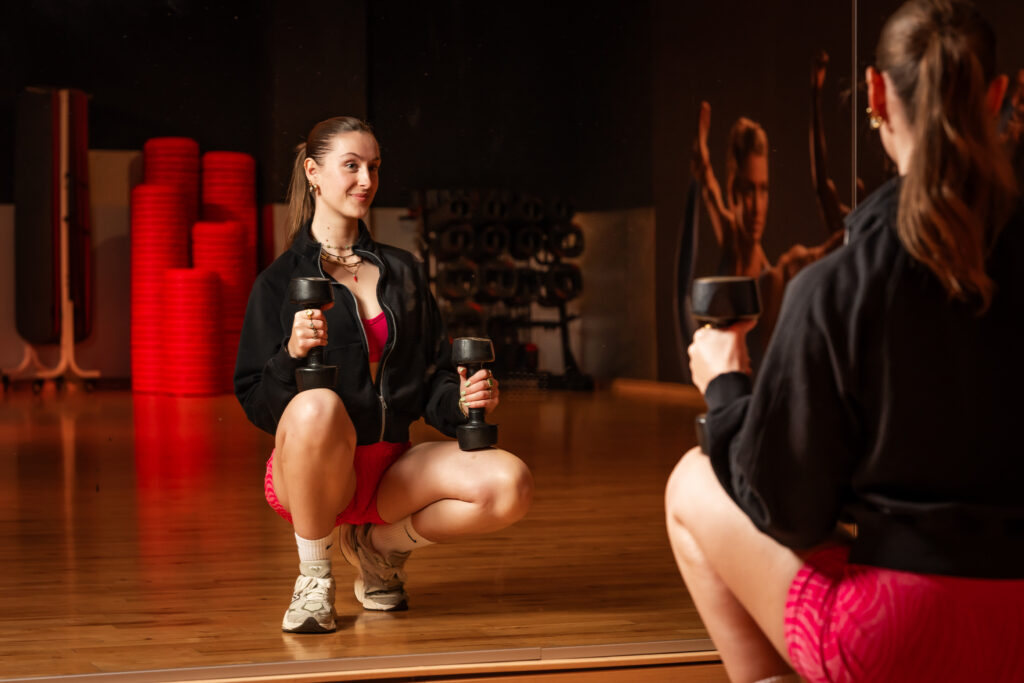
For many students, alcohol plays an important social role, especially during introduction weeks, parties and drinks. According to the National Drug Monitor 2023, 85 percent of HBO and WO students have drunk alcohol in the past year. The research shows that 16 percent of them have a heavy drink every week: at least six glasses of alcohol in one day for men and at least four glasses for women.
How do ‘non-drinking’ students view a student life without alcohol; why do they choose not to drink and how do their environment react? Speaking: Rosemarijn van den Goorbergh, Kai Matus and Pjotr Heijmans.
Rosemarijn (21) student Entrepreneurship and Business Innovation
‘My decision to quit drinking alcohol was actually a series of moments. It started four years ago, during my introduction week. At the time, I was still busy partying, but I soon noticed that I hated feeling so bad the day after such a party. That feeling intensified when I started exercising more fanatically.
‘When I moved into a student house in Tilburg, the drinking around me became more and more extreme. On a weekday evening, there was a lot of drinking. During that period, I once didn’t drink for three months.
‘The final decision to quit drinking alcohol was last year when I came out of an emotionally difficult relationship, which caused me to become completely unbalanced. I didn’t notice any real change right away. Later, I heard in a podcast that the effect of alcohol only really disappears after three to four months. That made me curious: how would I feel if I stopped for longer? With all the information I gathered during that period, I knew for sure: I don’t want to drink anymore.
‘Yet social pressure remains a challenge. My parents offered me a glass of wine every week in the beginning. I remember one moment well: my stepfather had bought oysters and asked me to chill a bottle of champagne, because that was ‘really part of it’. I had a knot in my stomach all day, afraid of the reactions if I refused the glass.
‘The biggest advantage of ‘not drinking’? No more feeling guilty towards myself. That insight motivated me to write a book, so that others who struggle with social pressure feel understood. For me, not drinking – just like going to the gym – is an act of self-care.’
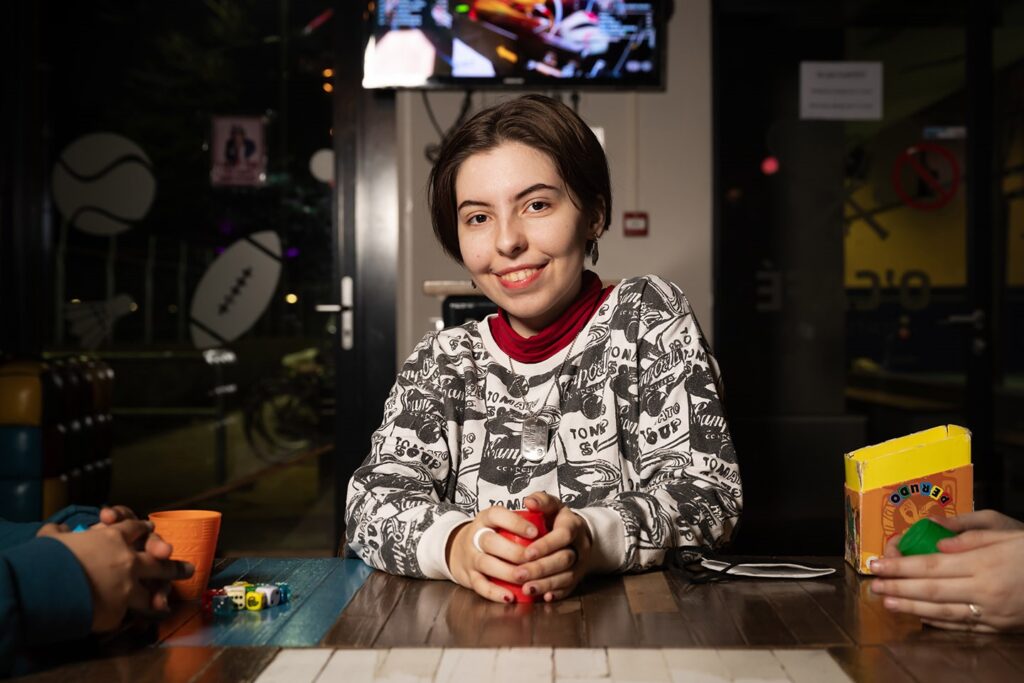
Kai Matus (21) student liberal arts and sciences
‘I have never really drunk alcohol. Of course I have tried a sip, but I don’t like the taste. My choice not to drink alcohol is reinforced by the many medical studies that show the negative effects it has on health.
‘Sometimes I feel excluded because of my choice. Student culture largely revolves around alcohol: drinks and parties are almost always associated with drinking. Because I don’t drink alcohol, I sometimes feel like I am not invited to certain events in advance.
‘Luckily there are also times when it is not a problem, such as at meetings of TSEA Link, a student association that I am a member of. There I do not experience social pressure to drink. This is a nice exception, because in the past I have experienced other situations. For example, I was once at a party in Amsterdam, where people kept insisting: ‘Come on Kai, have a drink!’ or ‘I’ll buy you a beer.’ When I repeatedly indicated that I did not want alcohol, I got reactions like: ‘Don’t be so boring, you are still young! You have to enjoy yourself!’
‘That kind of reaction is frustrating. I can have a great time without drinking. Besides the health benefits, there are more reasons not to consume alcohol. A big advantage is the cost savings; alcohol is expensive. I also never suffer from hangovers, I don’t have to worry about getting home safely, and I run less risk of having my stuff stolen because I’m not lucid.
‘My favorite non-alcoholic drink? Just a glass of apple juice.’
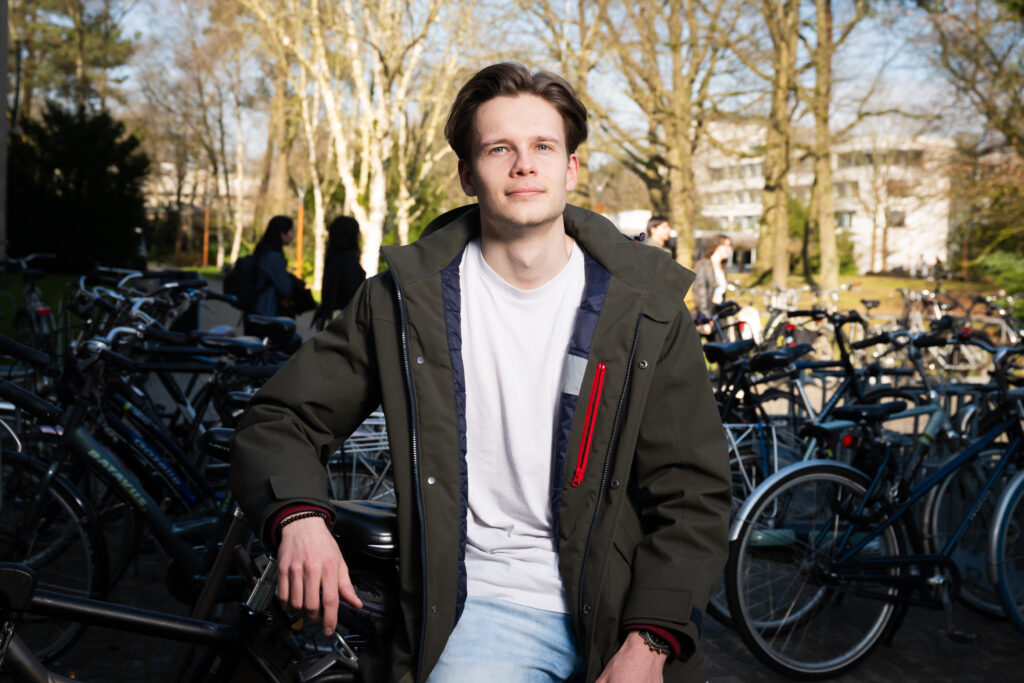
Pjotr Heijmans (23) student Entrepreneurship and Business Innovation
‘When I was nineteen, I decided to stop drinking. I made that decision after a barbecue with my football team. We had a ‘dtje kratje’ competition, where the goal was to drink a crate of beer as quickly as possible. The pace was high, and before I knew it, I had eaten a whole crate. On the way back, I fell off my bike several times and when I got home, I couldn’t even get the key in the lock. I walked from the front door to the back door and back again, searching for the right key. The next morning I realized: this has to change.
‘Stopping drinking turned out to be easier than expected, especially because I noticed results quickly. I felt sharper, slept better and my face became more lively again. As a person, I became much more honest. I learned to understand my own values better and was less inclined to tolerate bad behavior from others. Things I used to do under the influence, such as being loud, having superficial conversations or not keeping promises, gradually disappeared.
‘My social life changed enormously. I noticed that I disappeared from more and more circles of friends. It was only then that I realised how much social occasions revolve around alcohol. I used to spend most of my week drinking and partying, always in the company of friends. But when I stopped, those appointments disappeared.
‘Surprisingly enough, I didn’t mind. It taught me to look at people and friendships differently. I now spend my time on things that are truly valuable. For example, the bond with my family has become much stronger. And that feels good, because ultimately it’s all about them for me. I also spend more time on my studies.
‘Sometimes I still hear jokes about my choice, but that doesn’t affect me. If you set clear boundaries and stick to them, that earns respect. And the people who really matter understand that.’





